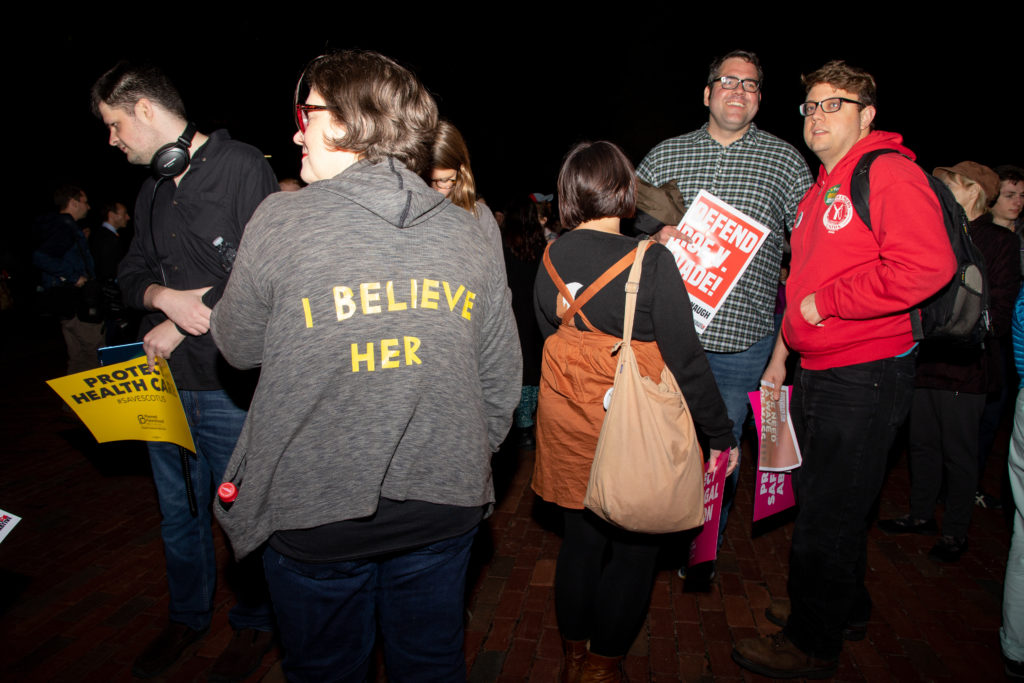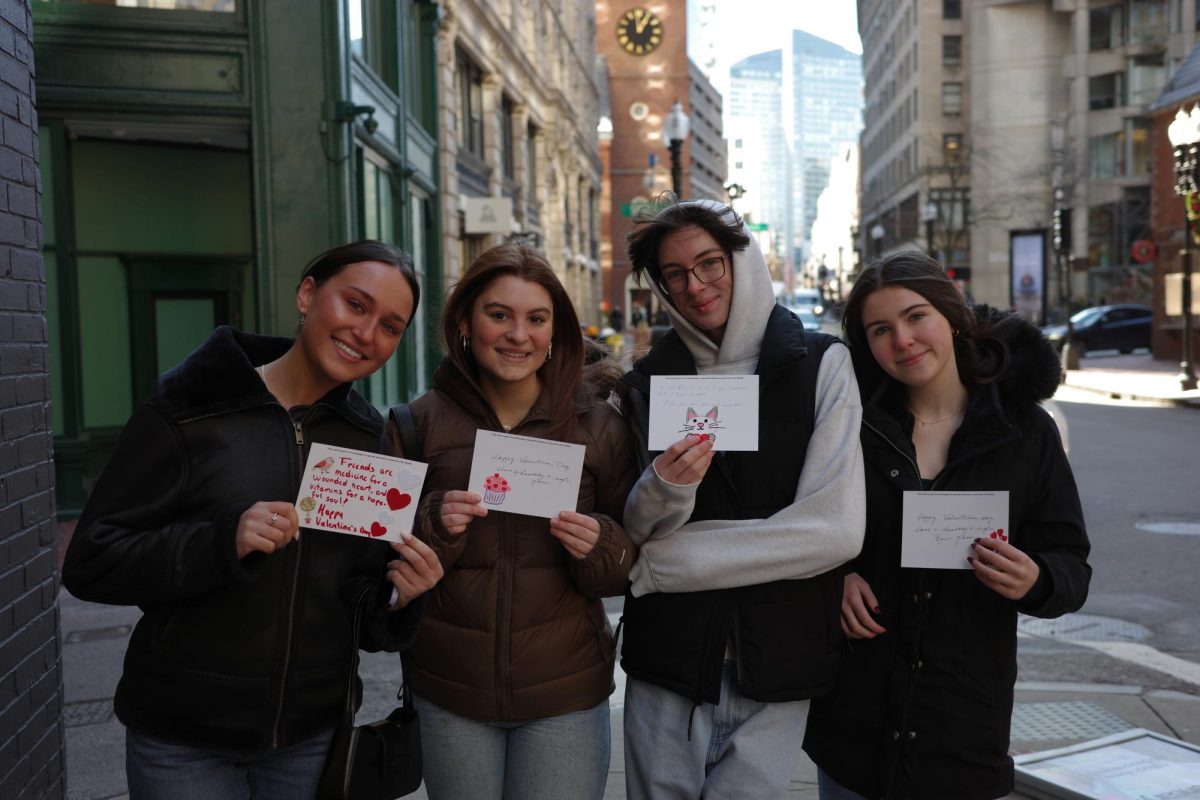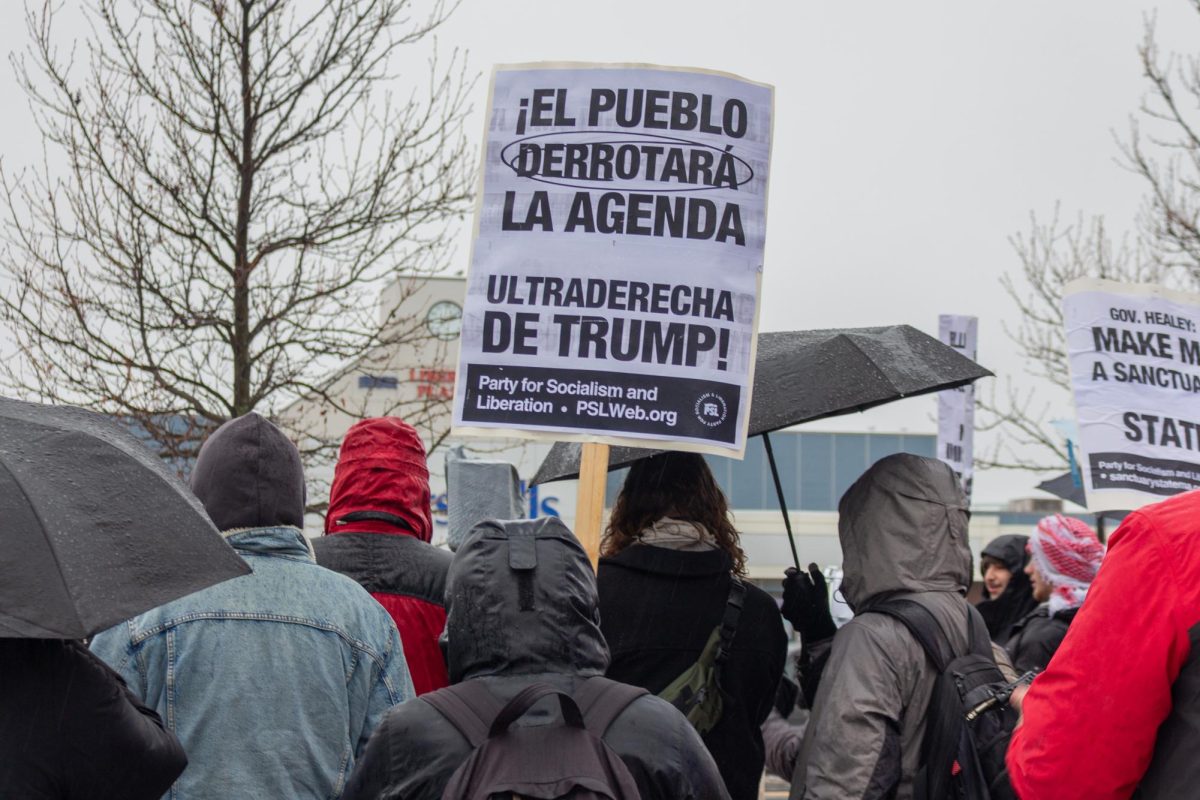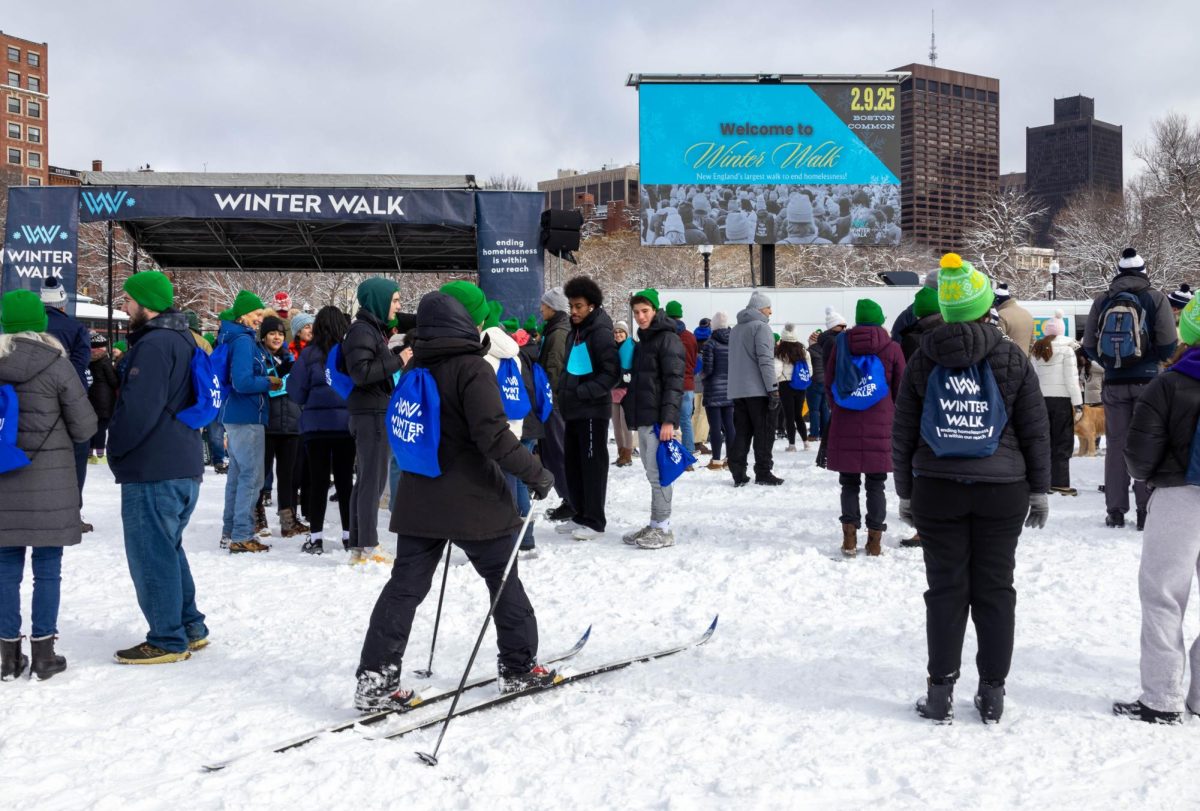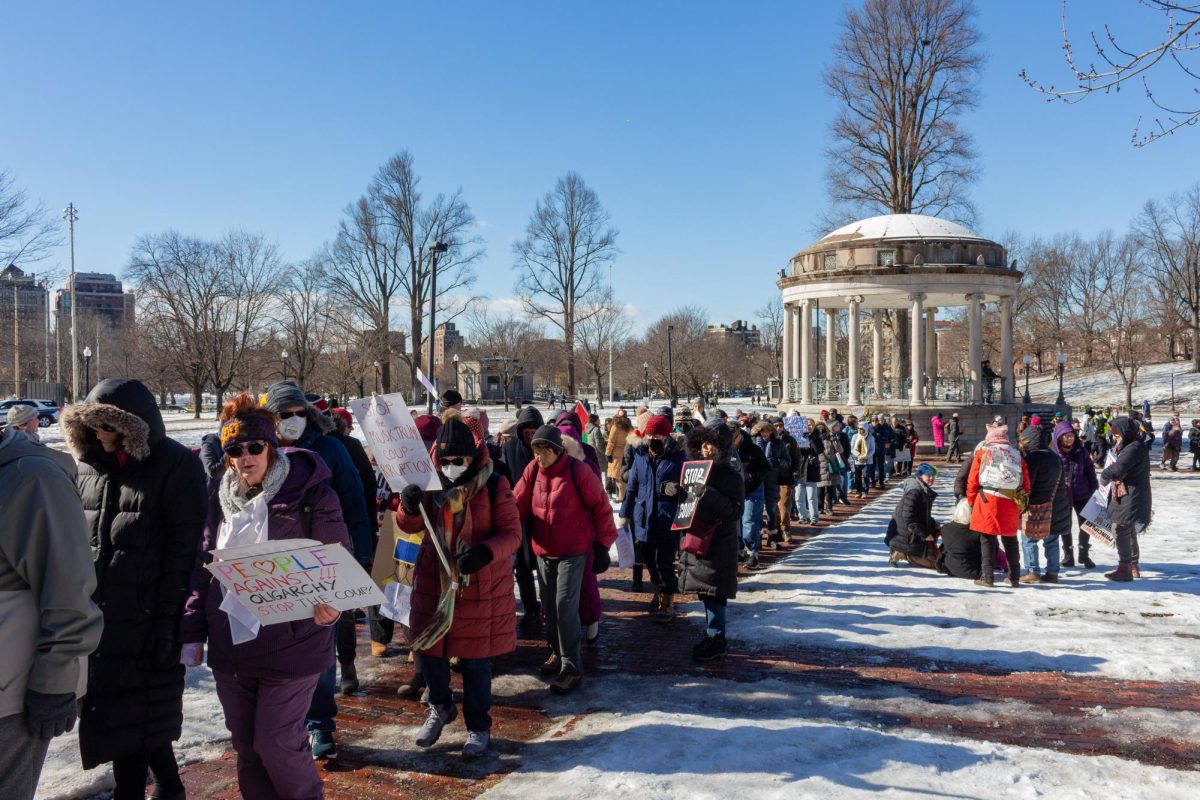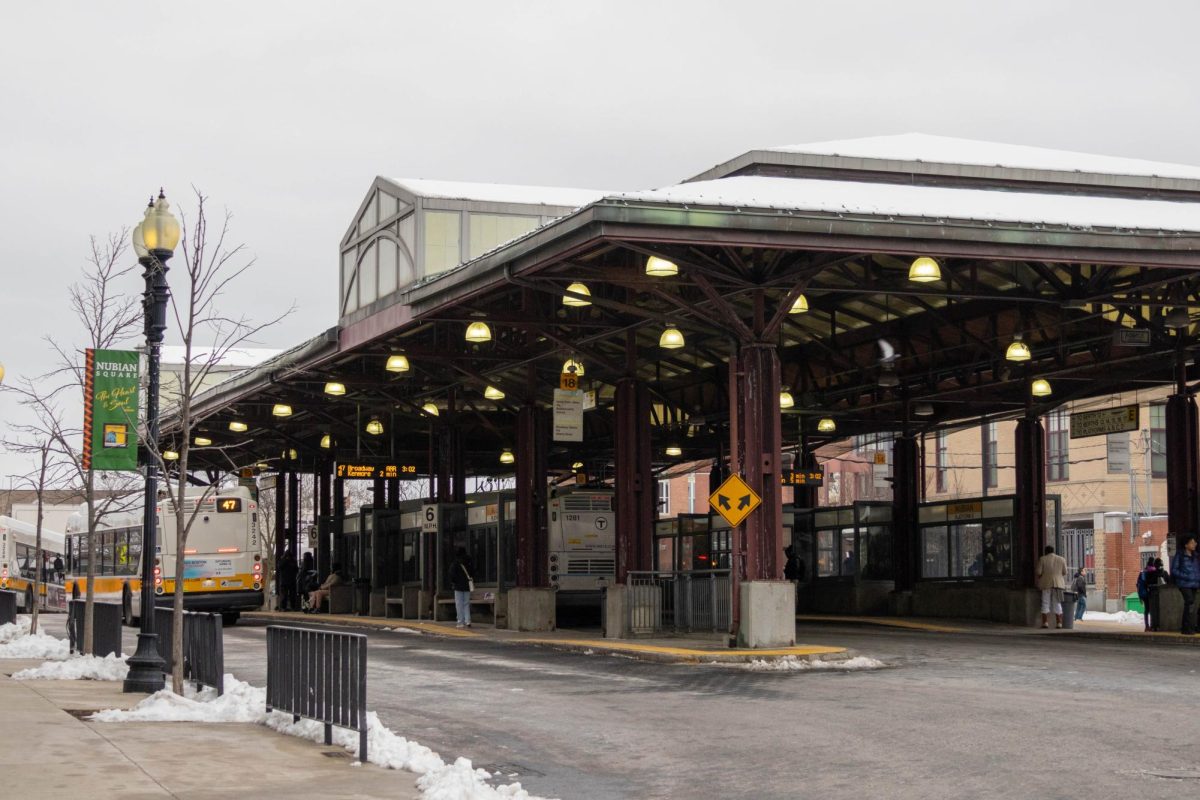By Sam Cronin, lifestyle editor
Protesters and political organizers from around Boston gathered at the State House Friday night to encourage senators not to confirm Brett Kavanaugh to the Supreme Court.
Sexual assault survivors shared their stories, including how they were ignored and silenced by police and others when they tried to report their assaults. Speakers likened their experiences to those of Christine Blasey Ford, the California professor who accused Kavanaugh of sexual assault at a high school party in the 1980s.
“I’m terrified and hate that I have to do this, like most of us,” said Sarah, a sexual assault survivor from Boston Democratic Socialists of America who did not provide their last name. “I don’t expect the Supreme Court to support us, because it wasn’t built for us. Like Dr. Ford, I never reported the multiple times I was raped, harassed. […] I’m tired of having to open our traumas.”
The protest was organized in part by the Boston chapter of the newspaper Socialist Alternative, as well as a chapter of the Service Employee International Union, Local 32BJ and the Somerville chapter of Our Revolution. Planned Parenthood volunteers also distributed informational pamphlets.
Tori Bilcik represented Believe Survivors Boston, which helped to organize a vigil held last week in solidarity with Ford. Bilcik denounced the pressure often put on survivors to speak out in order to give credibility to other survivors and the Democratic Party’s failed efforts to prevent Kavanaugh’s confirmation to the Supreme Court.
“I am standing up here as a survivor of rape,” she said. “Like Christine Blasey Ford, I didn’t start talking [about my assault] because I wanted to. Our stories feel like the only power we have. I am privileged in many ways, and yet I am still here. We need to listen to the people around us. Democrats won’t save us either, unless we unite and hold all politicians accountable.”
After hearing several speakers, the organizers began their planned march to the Edward W. Brooke Courthouse near the Haymarket T station. The police and event organizers regulated the flow of traffic and kept the march moving safely.
The crowd chanted statements including, “Blame the system, not the victim,” and “Sexist, racist, anti-gay; Kavanaugh go away.”
“When we’re loud as a group, we’re very loud,” said Keely Mullen, one of the event organizers with Socialist Alternative. “When someone is speaking, we listen. Is everyone okay with that?”
Cory, who did not provide a last name, attended the protest with the group Jobs with Justice. He said that often sexual assault survivors are not believed when they come forward and they are believed even less when part of a marginalized group.
“Often we [transgender people] are left out of the conversation,” Cory said. “I stand in solidarity with survivors. Too often we support survivors that fit the stereotype. When someone comes forward, believe them. Every time.”
After hearing from several survivors, event organizers and political activists spoke to challenge Kavanaugh’s previous court rulings. Activist Angela Mae Burnham said that Kavanaugh’s confirmation would lead to a more partisan Supreme Court. Kavanaugh’s subsequent confirmation has cemented a 5 to 4 conservative majority on the Supreme Court.
“We have to confront his entire record,” Mae Burnham said. “Kavanaugh ruled multiple times in favor of searching people. Kavanaugh will be a detriment to workers’ rights.”
Kavanaugh has previously ruled in several cases supporting warrantless searches, including the NSA’s collection of phone metadata, writing that a “critical national security need outweighs the impact on privacy occasioned by this program.”
In another case, he ruled that the police were justified in placing a tracker on a suspect’s car without a warrant, though he added that the government might have violated the suspect’s property rights by tampering with said car.
Kavanaugh wrote an opinion in 2016 supporting an employer requiring workers to waive their right to picket in an arbitration agreement.
Another activist, Quinn Angelou-Lysaker, said Kavanaugh was a “classic right-wing reactionary” and called for increased activism as a method of effecting governmental change.
“Where there is progress, there are feet on the street,” Angelou-Lysaker said.
Several times throughout the protest, cars drove by with drivers who said “nominate Kavanaugh” or “Kavanaugh 2020,” which were met with obscenities from the crowd.
The final speakers encouraged people to vote in the upcoming midterm elections, as well as on Boston Referendum Questions 1 and 3.
The protest drew to a close when organizers thanked accusers for coming forward and risking their safety. They also specifically thanked Anita Hill, the professor who accused Supreme Court nominee Clarence Thomas of sexual harassment in 1991. Hill’s experience following her accusation has been widely compared to Blasey Ford’s.
“Accusations of sexual assault must be confronted,” Mae Burnham said. “[This confirmation] undermines the court’s legitimacy. Thank you all for being here. All power to all of the people.”
Editor’s note: The News does not require victims of sexual assault to provide complete names when speaking about their experiences.



